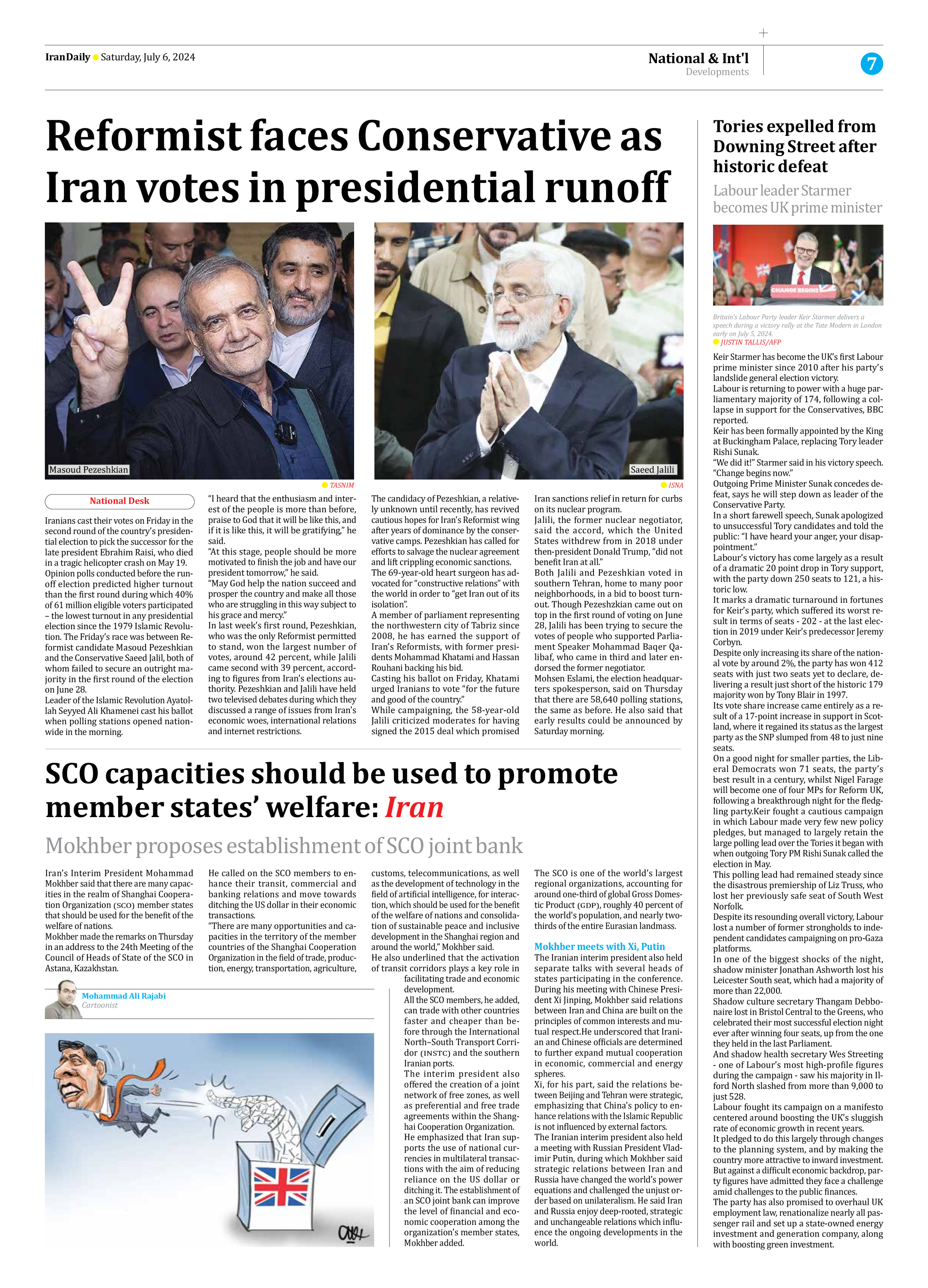
Copy in clipboard...
Tories expelled from Downing Street after historic defeat
Labour leader Starmer becomes UK prime minister
Labour is returning to power with a huge parliamentary majority of 174, following a collapse in support for the Conservatives, BBC reported.
Keir has been formally appointed by the King at Buckingham Palace, replacing Tory leader Rishi Sunak.
“We did it!” Starmer said in his victory speech. “Change begins now.”
Outgoing Prime Minister Sunak concedes defeat, says he will step down as leader of the Conservative Party.
In a short farewell speech, Sunak apologized to unsuccessful Tory candidates and told the public: “I have heard your anger, your disappointment.”
Labour’s victory has come largely as a result of a dramatic 20 point drop in Tory support, with the party down 250 seats to 121, a historic low.
It marks a dramatic turnaround in fortunes for Keir’s party, which suffered its worst result in terms of seats - 202 - at the last election in 2019 under Keir’s predecessor Jeremy Corbyn.
Despite only increasing its share of the national vote by around 2%, the party has won 412 seats with just two seats yet to declare, delivering a result just short of the historic 179 majority won by Tony Blair in 1997.
Its vote share increase came entirely as a result of a 17-point increase in support in Scotland, where it regained its status as the largest party as the SNP slumped from 48 to just nine seats.
On a good night for smaller parties, the Liberal Democrats won 71 seats, the party’s best result in a century, whilst Nigel Farage will become one of four MPs for Reform UK, following a breakthrough night for the fledgling party.Keir fought a cautious campaign in which Labour made very few new policy pledges, but managed to largely retain the large polling lead over the Tories it began with when outgoing Tory PM Rishi Sunak called the election in May.
This polling lead had remained steady since the disastrous premiership of Liz Truss, who lost her previously safe seat of South West Norfolk.
Despite its resounding overall victory, Labour lost a number of former strongholds to independent candidates campaigning on pro-Gaza platforms.
In one of the biggest shocks of the night, shadow minister Jonathan Ashworth lost his Leicester South seat, which had a majority of more than 22,000.
Shadow culture secretary Thangam Debbonaire lost in Bristol Central to the Greens, who celebrated their most successful election night ever after winning four seats, up from the one they held in the last Parliament.
And shadow health secretary Wes Streeting - one of Labour’s most high-profile figures during the campaign - saw his majority in Ilford North slashed from more than 9,000 to just 528.
Labour fought its campaign on a manifesto centered around boosting the UK’s sluggish rate of economic growth in recent years.
It pledged to do this largely through changes to the planning system, and by making the country more attractive to inward investment.
But against a difficult economic backdrop, party figures have admitted they face a challenge amid challenges to the public finances.
The party has also promised to overhaul UK employment law, renationalize nearly all passenger rail and set up a state-owned energy investment and generation company, along with boosting green investment.







